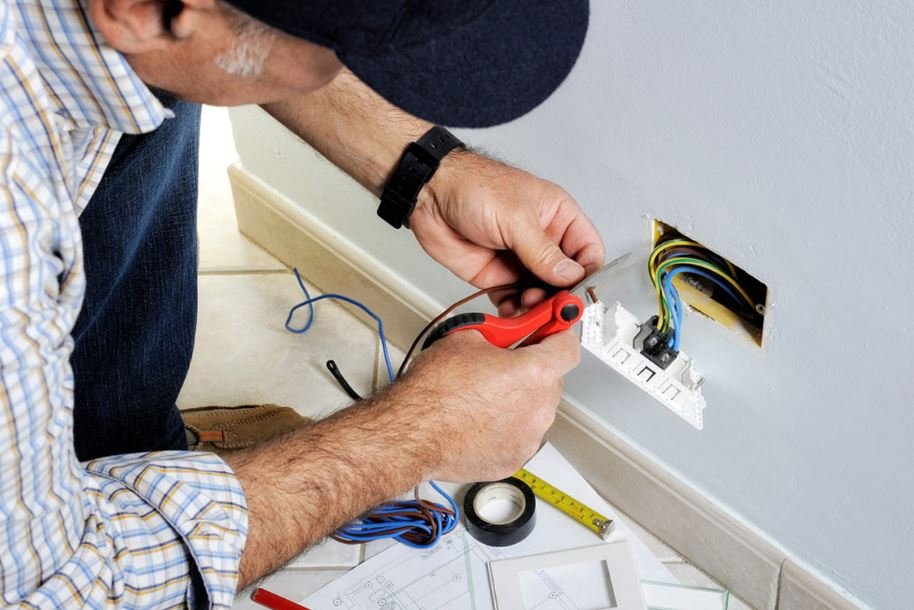In the dynamic world of construction, engineering, and industrial projects, one of the most crucial decisions you’ll make is selecting the right electrical contractor. The electrical system is the backbone of any modern construction, from providing essential power and lighting to enabling advanced technologies such as automation, energy efficiency, and renewable energy integration. Whether you are managing a multi-story residential building, a state-of-the-art office complex, or an industrial plant, the choice of your electrical contractor will play a decisive role in ensuring that your project is completed efficiently, safely, and within budget.
As a senior engineer with over 25 years of experience in the field of Engineering, Procurement, Construction, and Installation (EPCI), I can attest to the importance of careful planning and due diligence when hiring electrical contractors. When you’re managing a project that involves intricate electrical designs, systems integration, and compliance with safety and regulatory standards, hiring an experienced electrical contractor becomes not just a matter of necessity but of strategic importance. Below, we’ll explore the key considerations to bear in mind when hiring electrical contractors for your next big project—whether you’re operating in Nigeria, another part of Africa, or globally.
Licensing, Insurance, and Certification – The Foundation of a Reliable Partnership
The first consideration when hiring an electrical contractor is ensuring that they are fully licensed, insured, and certified. Licensing is not just a formality—it is proof that the contractor has the necessary technical skills, industry knowledge, and training to complete the electrical work to the required standards. Different countries have specific electrical codes and standards that contractors must adhere to, which is why verifying a contractor’s credentials is crucial.
In many regions, electrical contractors are required to hold insurance, which protects both the contractor and the client from accidents, injuries, or damage to property. This is particularly important on large-scale projects where multiple teams are working in tandem, and the potential for accidents increases. Without proper insurance coverage, you could be exposed to significant liabilities should anything go wrong. Be sure to request proof of insurance and licensing before finalizing your decision.
Additionally, certifications from recognized industry bodies, such as the National Electrical Contractors Association (NECA) in the United States or the Electrical Contractors’ Association of Nigeria (ECAN), can provide additional assurances of the contractor’s expertise and professionalism. Certified contractors are likely to stay updated with the latest standards, codes, and technologies, ensuring that your project benefits from the most current industry practices.
Experience and Specialization – Matching Skills to Project Needs
Experience matters. An electrical contractor’s background in handling projects of a similar nature can make a significant difference in how well they manage your job. While many contractors can perform basic installations, the intricacies of modern electrical systems require a contractor with a proven track record in your specific project type.
For example, if you are working on a large industrial plant, you’ll need an electrical contractor who has expertise in industrial automation, power distribution, and control systems. On the other hand, for a high-end residential project or a commercial building, you’ll require a contractor who is experienced with sophisticated lighting systems, energy-efficient designs, and sustainable electrical solutions. Hiring a contractor with relevant experience minimizes the likelihood of delays and ensures that your project adheres to high industry standards.
Another important factor is the contractor’s ability to integrate advanced technologies. With the rise of smart homes, renewable energy systems, and automated solutions, the electrical contractor you hire must be well-versed in these innovative fields. Whether it’s installing solar energy systems, integrating smart lighting controls, or setting up automated building management systems, an experienced electrical contractor can help make your project not only more cost-effective but also future-proof.
Safety Standards and Quality Control – Protecting Lives and Investments
Electrical work is inherently dangerous. With the complexity of modern electrical systems, ensuring safety on the job site is paramount. The contractor you choose must adhere to stringent safety protocols and be proactive in maintaining safe work environments for their team and everyone involved in the project. The most reputable contractors are those who invest in safety training for their employees, conduct regular safety audits, and comply with national and international safety standards.
In addition to safety, maintaining high-quality work is essential for the longevity and reliability of the electrical systems in your building. Substandard electrical work can lead to system failures, fire hazards, and operational inefficiencies. A good electrical contractor will be committed to quality control, regularly inspecting their work, and ensuring it meets or exceeds industry standards. The contractor should also be able to provide clear documentation of their work, which can be valuable when it comes time for inspections and obtaining necessary certifications.
Budgeting, Cost Estimation, and Transparency – Managing Project Finances
When it comes to construction and engineering projects, managing the budget effectively is one of the most crucial aspects of ensuring the project’s success. Electrical contractors, especially those with a wealth of experience, should be able to provide accurate and detailed cost estimates that take into account the full scope of the project, including materials, labor, and any potential unexpected costs that might arise.
While it may be tempting to select the contractor offering the lowest bid, this approach can be risky. It’s important to look beyond just the price and consider the value being offered. A reputable electrical contractor will provide a transparent estimate with a breakdown of costs, allowing you to understand what you’re paying for and why. They should also be able to advise on cost-saving measures without compromising on the quality or safety of the project.
Moreover, a reliable electrical contractor should be able to keep the project on budget and on schedule. Delays in electrical installations can result in cost overruns and project setbacks. A contractor who has experience in managing project timelines and budgets will help ensure that the electrical component of the project proceeds smoothly, minimizing financial strain and avoiding unnecessary delays.
Communication and Collaboration – Working Together for Success
Effective communication between you, the contractor, and all other project stakeholders is essential for a successful project outcome. The best electrical contractors are not only skilled tradespeople but also excellent communicators who understand the importance of regular updates, clarity, and responsiveness. Whether it’s clarifying specifications, discussing changes in scope, or addressing potential problems, a contractor who maintains clear and open communication will help prevent misunderstandings and ensure that the project runs smoothly.
Collaboration is also key. The electrical contractor needs to work seamlessly with other contractors and engineers on the project, from the civil and mechanical teams to the project managers and architects. The ability to collaborate effectively ensures that the electrical work is integrated properly with other systems and that any challenges or conflicts are resolved efficiently.
Reputation and Track Record – Trust Built Over Time
A contractor’s reputation is a reflection of their experience and work ethic. As you consider potential electrical contractors for your next project, it’s important to check references, read reviews, and seek feedback from other professionals who have worked with them. Look for contractors who have successfully completed projects similar to yours and have a history of delivering quality results on time and within budget. A solid reputation is often a good indicator of a contractor’s reliability, professionalism, and commitment to high standards.
Conclusion – The Path to a Successful Project
Selecting the right electrical contractor is one of the most important decisions you’ll make when managing any construction or engineering project. By taking into account factors such as experience, expertise, safety standards, and effective communication, you’ll be well-positioned to find a contractor who can deliver a high-quality electrical system that meets your needs and exceeds your expectations. Ultimately, the right electrical contractor can save you time, money, and hassle, while ensuring the safety and functionality of your project for years to come.
Call to Action
Stay ahead of the curve with the latest updates in Energy, Construction, Engineering, and Cryptocurrency. Join our real-time news community on WhatsApp or Telegram for live updates, and get the latest articles, tips, and industry insights delivered straight to your device. Have a report or article to share? Reach out to us at report@epci.ng. Follow us on X (Twitter), Instagram, LinkedIn, and Facebook for expert insights and industry news.







Leave feedback about this